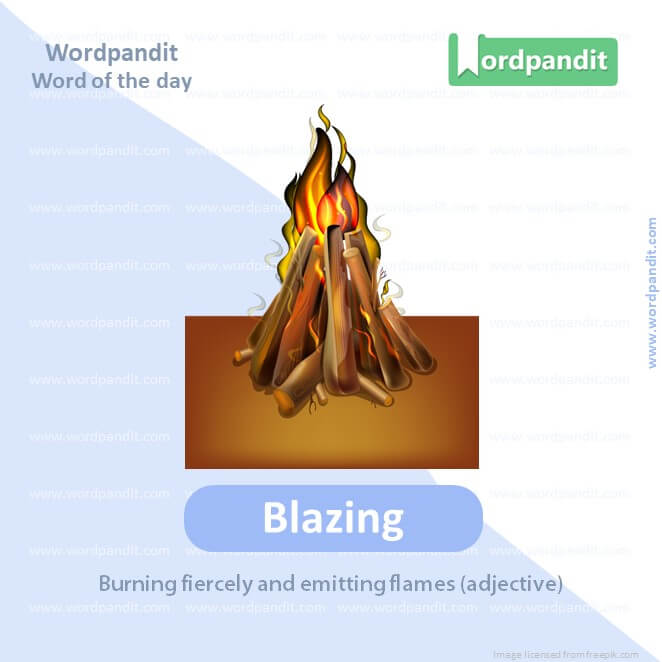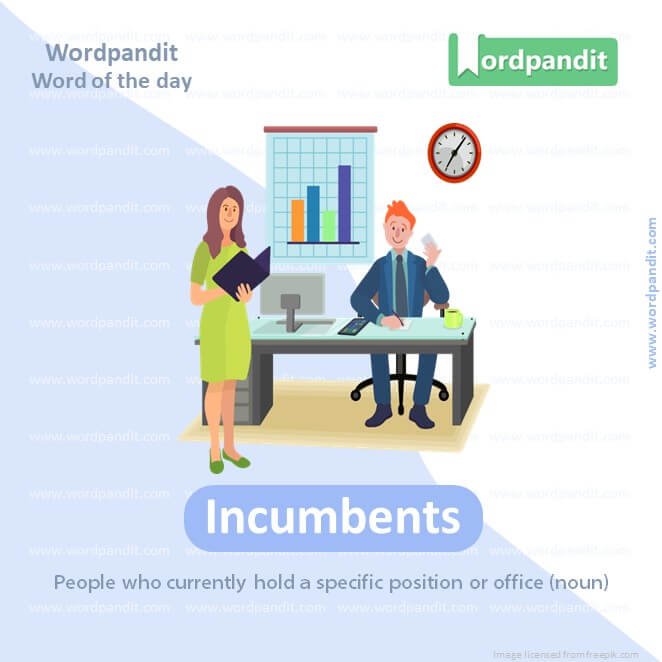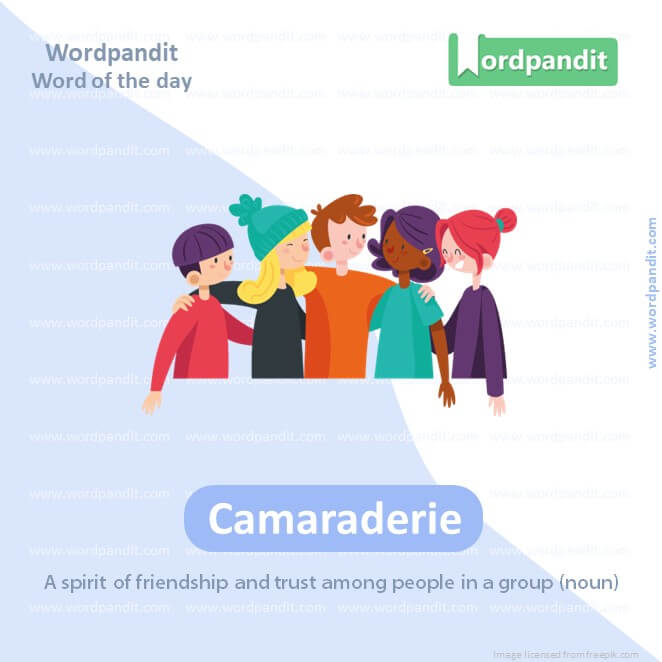Daily Vocabulary Words: List of Daily Used Words
Hi there. Welcome to this special section @ Wordpandit.
Our endeavour here is straightforward: highlighting important daily vocabulary words, you would encounter in The Hindu. This is your repository of commonly used words; essentially, we are posting a list of daily used words. Hence, this has significant practical application as it teaches you words that are commonly used in a leading publication such as The Hindu.
Visit the website daily to learn words from The Hindu.

WORD-1: Coalition
CONTEXT: Haryana is in political turmoil after three independent MLAs withdrew their support to the ruling Bharatiya Janata Party (BJP), and its former coalition partner, the Jannayak Janta Party (JJP), offered support to the Congress to form an alternative government.
SOURCE: The Hindu
EXPLANATORY PARAGRAPH: Imagine you and your friends team up to build a giant sandcastle together at the beach. That’s like a “coalition.” It’s when different groups come together to work toward a common goal.
MEANING: A temporary alliance for combined action, especially among political parties (noun).
PRONUNCIATION: koh-uh-LISH-uhn
SYNONYMS: alliance, partnership, union, league, federation, confederation
USAGE EXAMPLES:
1. The environmental groups formed a coalition to protect the forest.
2. The political coalition worked together to pass the new law.
3. A coalition of parents demanded better school facilities.
4. The two companies created a coalition to develop a new product.
WORD-2: Disgruntled
CONTEXT: But BJP leaders assert that their government is under ‘no threat’ and if there be any need, ‘other MLAs’ will support them — an indicator of support from disgruntled MLAs of the JJP.
SOURCE: The Hindu
EXPLANATORY PARAGRAPH: Imagine you really wanted chocolate ice cream, but you only got vanilla, and now you’re a bit grumpy about it. That’s “disgruntled.” It’s when you’re unhappy and upset about something.
MEANING: Unhappy and dissatisfied, often due to feeling unfairly treated (adjective).
PRONUNCIATION: dis-GRUN-tuhld
SYNONYMS: dissatisfied, displeased, annoyed, irritated, resentful
USAGE EXAMPLES:
1. The disgruntled customer left the store without buying anything.
2. Employees were disgruntled about the lack of raises this year.
3. The coach tried to motivate the disgruntled players after their loss.
4. A group of disgruntled fans protested against the team’s management.

WORD-3: Blazing
CONTEXT: The Congress and the JJP have come out all guns blazing at the BJP, but appear to be moving with a guarded approach by putting the onus to initiate the process of bringing down the incumbent government on each other.
SOURCE: The Hindu
EXPLANATORY PARAGRAPH: Imagine the sun shining so brightly that it feels super hot on your skin. That’s “blazing.” It means something is very bright and hot, like fire.
MEANING: Burning fiercely and emitting flames (adjective).
PRONUNCIATION: BLAY-zing
SYNONYMS: burning, flaming, intense, scorching, glaring
USAGE EXAMPLES:
1. The campers sat around the blazing fire to keep warm.
2. The sun was blazing down on us at noon.
3. Her blazing eyes showed how angry she was.
4. The firefighters rushed to control the blazing building.

WORD-4: Incumbents
CONTEXT: The Congress and the JJP have come out all guns blazing at the BJP, but appear to be moving with a guarded approach by putting the onus to initiate the process of bringing down the incumbent government on each other.
SOURCE: The Hindu
EXPLANATORY PARAGRAPH: Imagine you’re already the leader of your club, and everyone needs to vote whether you’ll stay in charge or not. Being the current leader is like being “incumbent.” It’s when someone already has a special position or job.
MEANING: People who currently hold a specific position or office (noun).
PRONUNCIATION: in-KUHM-bent
SYNONYMS: current, sitting, existing, necessary, obligatory
USAGE EXAMPLES:
1. The incumbent president is seeking re-election.
2. It is incumbent upon the manager to ensure the safety of all employees.
3. The incumbent governor faced strong opposition during the election.
4. It is incumbent on all students to attend the safety training.
WORD-5: Intervene
CONTEXT: Both parties have asked Governor Bandaru Dattatreya to intervene.
SOURCE: The Hindu
EXPLANATORY PARAGRAPH: If your friends are arguing over a toy, and you step in to help them share, that’s called “intervene.” It means you get involved to help solve a problem.
MEANING: To get involved in a situation to change or improve it (verb).
PRONUNCIATION: in-ter-VEEN
SYNONYMS: mediate, step in, intercede, involve, interfere
USAGE EXAMPLES:
1. The teacher had to intervene to stop the students from fighting.
2. When the debate became too heated, the moderator intervened.
3. The government decided to intervene in the market to stabilize prices.
4. She intervened to help the two sides reach a compromise.

WORD-6: Flock
CONTEXT: At least two of the 10 JJP MLAs have declared their support to BJP candidates in the Lok Sabha polls, and it is getting hard for the JJP to keep its flock together.
SOURCE: The Hindu
EXPLANATORY PARAGRAPH: Imagine a big group of birds flying together in the sky. That’s called a “flock.” It means a bunch of animals or people gathering closely together.
MEANING: A group of birds or other animals that travel together (noun). To come together or move as a group (verb).
PRONUNCIATION: flok
SYNONYMS: herd, group, crowd, gather, cluster
USAGE EXAMPLES:
1. A flock of geese flew across the sky at sunset.
2. The tourists flocked to the beach during summer.
3. The sheep followed the shepherd in a tight flock.
4. People flocked to the concert to see their favorite band perform.
WORD-7: Ante
CONTEXT: After parting ways with the BJP, the JJP, which draws its support largely from the agrarian class, primarily the Jat community, has upped the ante against its former partner.
SOURCE: The Hindu
EXPLANATORY PARAGRAPH: When you’re playing a card game and you have to put in a small amount of money to start the game, that’s called the “ante.” It’s the amount each player has to contribute before the game can begin.
MEANING: An amount of money that each player must put into the pot before the game starts (noun). To increase the amount of money or level of commitment (verb).
PRONUNCIATION: AN-tee
SYNONYMS: bet, stake, contribution, raise, up
USAGE EXAMPLES:
1. Each player placed their ante before the cards were dealt.
2. The casino raised the ante for the final round of the tournament.
3. If you want to join the high-stakes game, you’ll need to ante up more money.
4. They decided to ante up their efforts to secure the deal.

WORD-8: Camaraderie
CONTEXT: In a rare display of camaraderie across the political divide, Democrats in the U.S. House of Representatives rushed to the aid of Republican House Speaker Mike Johnson…
SOURCE: The Hindu
EXPLANATORY PARAGRAPH: Imagine all your friends together, laughing and having fun, helping each other build a big Lego tower. That happy, friendly feeling is called “camaraderie.”
MEANING: A spirit of friendship and trust among people in a group (noun).
PRONUNCIATION: kahm-uh-RAH-duh-ree
SYNONYMS: friendship, companionship, solidarity, brotherhood, togetherness
USAGE EXAMPLES:
1. The team’s camaraderie helped them work well together on the field.
2. She loved the camaraderie of her book club.
3. After working together for years, they developed a strong camaraderie.
4. The camping trip brought a sense of camaraderie to the group.
WORD-9: Unabashed
CONTEXT: The threat to his role as the functional head of the lower chamber of the U.S. Congress came from far-right Republican lawmaker and unabashed supporter of former President Donald Trump.
SOURCE: The Hindu
EXPLANATORY PARAGRAPH: Imagine you’re dancing and singing in front of your family, even if they might giggle a bit. If you’re doing it confidently and not feeling shy, you’re “unabashed.”
MEANING: Not embarrassed or ashamed, especially about expressing emotions (adjective).
PRONUNCIATION: un-uh-BASHT
SYNONYMS: unashamed, unafraid, bold, confident, fearless
USAGE EXAMPLES:
1. She was unabashed in her love for cheesy romantic movies.
2. The performer took the stage, unabashed by the large audience.
3. His unabashed enthusiasm for the project inspired everyone.
4. He remained unabashed despite criticism from his colleagues.
WORD-10: Booed
CONTEXT: Ms. Greene said, in a speech on the floor of the house that was booed by her fellow Congressmen.
SOURCE: The Hindu
EXPLANATORY PARAGRAPH: If you hear a loud “boo!” from the crowd because they didn’t like something, that’s called “booed.” It’s when people make a loud sound to show they’re unhappy or disagree.
MEANING: Expressed disapproval by shouting “boo!” (verb, past tense).
PRONUNCIATION: bood
SYNONYMS: jeered, hissed, heckled, shouted, disapproved
USAGE EXAMPLES:
1. The audience booed loudly when the referee made a bad call.
2. The comedian was booed off the stage after telling an offensive joke.
3. The player was booed by fans after missing an easy goal.
4. Some people booed at the politician’s speech, while others cheered.
Vocabulary Words with Meaning
Penetrating the rich tapestry of language, the essence of ‘vocabulary words with meaning’ is a crucial aspect. It’s these seeds of knowledge that bud into fluent conversations and comprehensive understanding. The knack of grasping ‘vocabulary words with meaning’ is pivotal in language learning, but it demands a nuanced approach and strategy.
Learning ‘vocabulary words with meaning’ isn’t about mechanically memorizing heaps of words. It’s about building connections and creating a profound understanding of these words. A promising approach to assimilate ‘vocabulary words with meaning’ involves utilizing a wide range of resources including literature, films, music, and digital content. This immersion provides a broad context and diverse settings for these words, simplifying their comprehension and use.
When you’re focusing on ‘vocabulary words with meaning’, remember to incorporate memory-enhancing techniques into your learning regimen. Tools like flashcards or recall-based applications can aid significantly in long-term retention of these words. Additionally, mnemonic strategies, associating words with distinctive images or stories enhance memory recall and understanding.
The journey of mastering ‘vocabulary words with meaning’ also benefits greatly from practice and application. Engage in conversations using the language, express your thoughts in writing, and try to incorporate newly learned words into your routine. This not only enhances your familiarity with the words but also aids in an intimate understanding of their connotations and denotations.
To sum up, learning ‘vocabulary words with meaning’ is akin to assembling a jigsaw puzzle: it requires patience, strategy, and persistence. But the picture that finally emerges is a beautiful tapestry of language – vivid, articulate, and expressive. So, set your sails toward the voyage of ‘vocabulary words with meaning’, and discover the joy of speaking and understanding a language with finesse.











